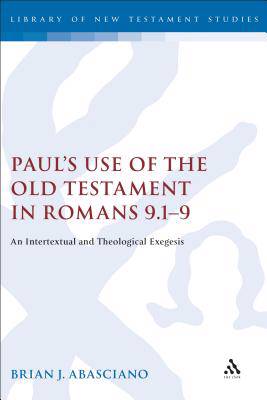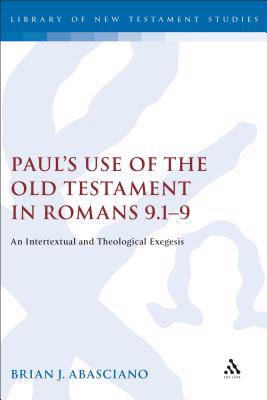
- Afhalen na 1 uur in een winkel met voorraad
- Gratis thuislevering in België vanaf € 30
- Ruim aanbod met 7 miljoen producten
- Afhalen na 1 uur in een winkel met voorraad
- Gratis thuislevering in België vanaf € 30
- Ruim aanbod met 7 miljoen producten
Zoeken
Paul's Use of the Old Testament in Romans 9.1-9
An Intertextual and Theological Exegesis
Brian J Abasciano
€ 415,95
+ 831 punten
Omschrijving
This investigation builds upon recent developments in the study of Paul's use of Scripture that center around the concept of ""intertextuality."" Abasciano uses an exegetical method that incorporates into a thorough traditional exegesis a comprehensive analysis of Paul's use of Scripture against the background of interpretive traditions surrounding the texts alluded to, with great emphasis placed on analyzing the original contexts of Paul's citations and allusions. Such an intertextual exegesis is conducted in Romans 9:1-9 with an awareness of the broader unit of chapters 9-11 especially, and also the epistle as a whole. The study finds that many of the themes Paul deals with in Romans 9-11 are also present in ancient Jewish and Christian interpretive traditions surrounding the passages he invokes, and more importantly, that Paul's scriptural quotations and allusions function as pointers to their broad original contexts, from which he developed much of the form, content, and direction of his argument, holding significance for a number of exegetical details as well as broader themes and rhetorical movements. The final chapter seeks to draw conclusions concerning the significance of Paul's use of the Old Testament in Romans 9:1-9 for the exegesis and theology of Romans and for Pauline intertextuality. The identity of the true people of God is central to Romans 9-11 and the epistle. And Paul's use of Scripture is contextual and referential, calling for attention to Pauline intertextuality in standard exegetical procedure. JSNTS 301
Specificaties
Betrokkenen
- Auteur(s):
- Uitgeverij:
Inhoud
- Aantal bladzijden:
- 280
- Taal:
- Engels
- Reeks:
Eigenschappen
- Productcode (EAN):
- 9780567030733
- Verschijningsdatum:
- 20/12/2005
- Uitvoering:
- Hardcover
- Formaat:
- Genaaid
- Afmetingen:
- 156 mm x 234 mm
- Gewicht:
- 566 g

Alleen bij Standaard Boekhandel
+ 831 punten op je klantenkaart van Standaard Boekhandel
Beoordelingen
We publiceren alleen reviews die voldoen aan de voorwaarden voor reviews. Bekijk onze voorwaarden voor reviews.











